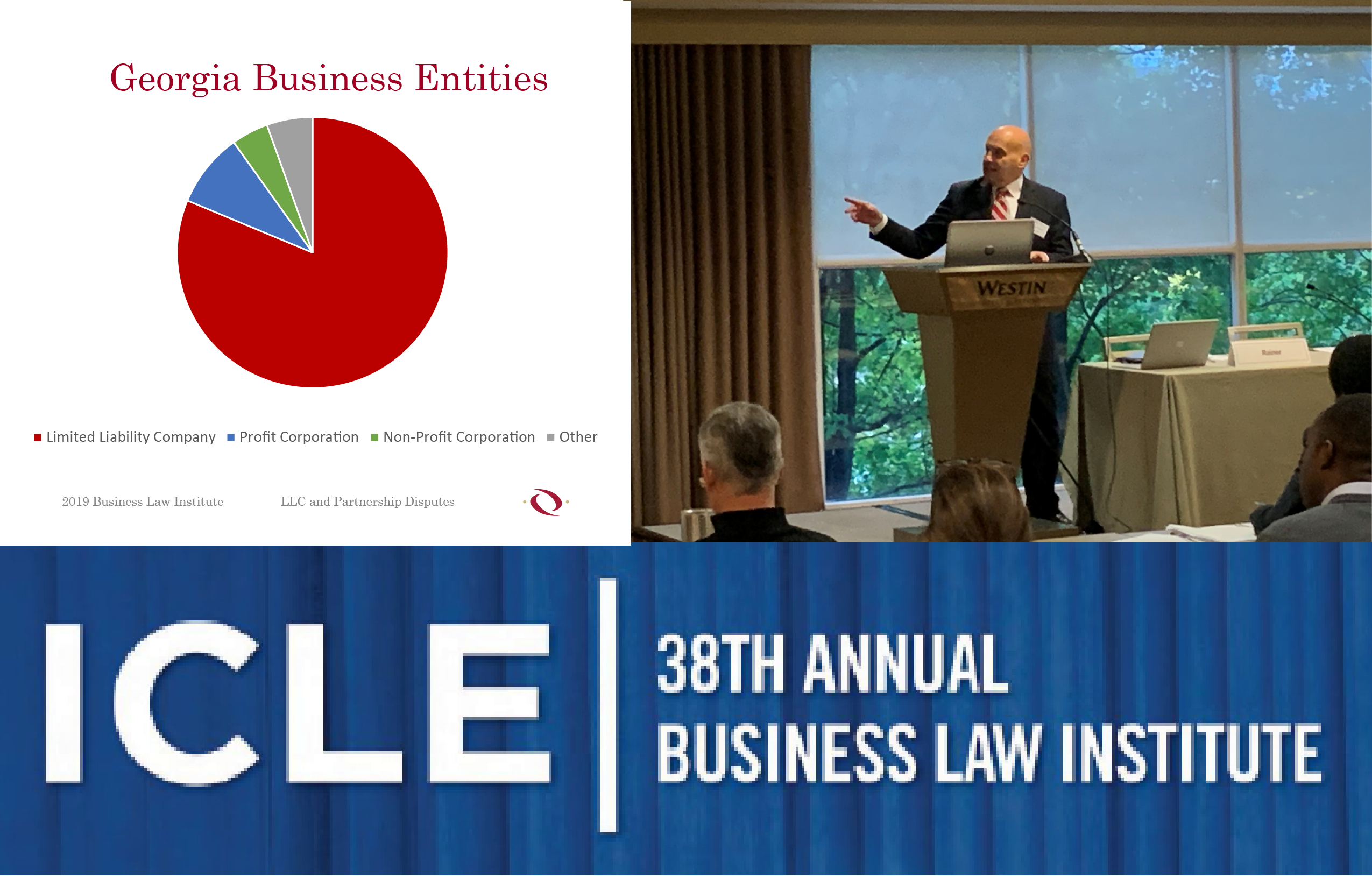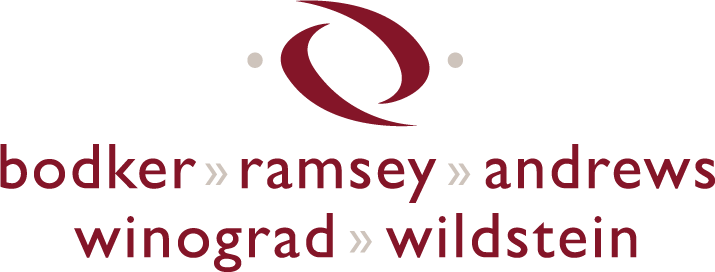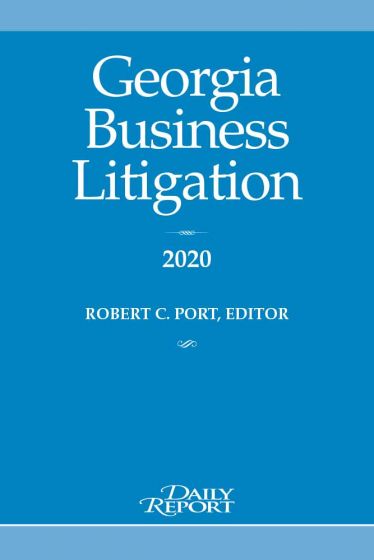Seven Bodker, Ramsey, Andrews, Winograd & Wildstein Recognized as 2020 Georgia Super Lawyers
Bodker, Ramsey, Andrews, Winograd & Wildstein, P.C. is pleased to announce that seven of the Firm’s attorneys have been named to the 2020 Georgia Super Lawyers List.
Brian, D. Bodker, Timothy J. Ramsey, Stephen C. Andrews, Harry J. Winograd, Robert D. Wildstein, Jessica J. Wood, and Thomas Rosseland were all recognized by Super Lawyers for their expertise and contributions in the areas of Business/Corporate Law, Family Law and Business Litigation. No more than five percent of the lawyers in Georgia are selected by Super Lawyers. In addition, Jessica Wood was selected to the Georgia Top 50 Women and the Georgia Top 100 Lists.
The complete list of honorees is available at https://www.superlawyers.com/georgia/toplists/.
Super Lawyers, part of Thomson Reuters, is a rating service of outstanding lawyers from more than 70 practice areas who have attained a high degree of peer recognition and professional achievement. The annual selections are made using a patented multiphase process that includes a statewide survey of lawyers, an independent research evaluation of candidates and peer reviews by practice area. The result is a credible, comprehensive and diverse listing of exceptional attorneys.
The Super Lawyers lists are published nationwide in Super Lawyers Magazines, leading city and regional magazines and newspapers across the country. Super Lawyers Magazines also feature editorial profiles of attorneys who embody excellence in their practice of law. For more information about Super Lawyers, go to SuperLawyers.com.
Read MoreMergers and Acquisitions – Proposed Guidelines

On January 10 the US Federal Trade Commission (FTC) and the Department of Justice’s Antitrust Division (DOJ) issued Draft Vertical Guidelines concerning vertical mergers, currently open for public commentary through February 11, 2020. These guidelines detail how the FTC and DOJ analyze the potential anti-competitive or pro-competitive effects a vertical merger may create within a marketplace. Significantly, the draft guidelines depart from the DOJ’s 1984 guidelines concerning vertical mergers in favor of being more in line with the Canadian Competition Bureau’s Merger Enforcement Guidelines, signifying a likely shift in how cross-border Canada/US mergers are assessed by governing bodies.
A vertical merger, or vertical integration, is a merger between certain entities, firms, and assets within various different stages of a supply chain for the purposes of streamlining a business’ overall processes. Examples of such transactions include an acquisition of a retail company by the manufacturer, or vice versa, and have the potential to hinder or box out altogether any competition within a certain retail sphere when all aspects of a supply chain become wholly owned and controlled by one entity. While vertical mergers have the potential to create a healthier marketplace through the creation of streamlined processes and overall efficiency, regulatory schemes exist to mitigate risks of monopolistic expansion which has the potential to harm consumers. While horizontal mergers, in which two business competing within the same point in the supply chain, are a separate concern as well, vertical mergers tend to attract more scrutiny due to the all-encompassing nature of supply chain integration.
Overall, the Draft Vertical Guidelines demonstrate certain similarities with the 1984 guidelines, the Canadian Competition Bureau’s guidelines, and guidelines directed towards horizontal mergers, in addition to certain drastic departures from those regulatory frameworks, the specific impacts of which have yet to fully manifest. For these reasons, companies involved in supply chain focused activities, especially those involved in cross-border streams, should actively reassess whether or not certain transaction specifics are more likely to fall under the FTC and DOJ’s evolving methods of market analysis. The potential costs associated with running afoul of these guidelines, which in all likelihood will reflect the recent draft guidelines, can be detrimental to the survival of a business.
Bodker Ramsey Andrews Winograd & Wildstein specializes in complex business transactions and has decades of experience guiding expanding businesses through large-scale mergers and acquisitions.
Read MoreWilson and Wood Both Featured in The Atlanta Lawyer
We are proud to share this month’s Atlanta Lawyer Magazine – “Reality Check – Expectations vs. Reality,” featuring two of our business litigators, Jessica Wood and Brian Wilson. Brian joined our Firm in 2019 and as a new associate, Brian writes a column on the difference between a Student Mindset and the game face needed to be a professional attorney. Jessica serves on the Board of the Atlanta Bar Association and in the “Ask the Board” segment this month shares a few reality vs. expectation experiences. The Atlanta Lawyer’s recent issue can be found at: https://www.atlantabar.org/page/TAL
Read MoreLoan and Credit Facility Agreements
Read MoreOver the years, we’ve learned that many clients do not understand the importance and contents of their loan and credit facility agreements. Of course, the number one concern for clients is whether the financial terms are accurate. What may get overlooked is what can cause exposures and costs and inabilities or delays in getting line of credit advances. These credit facility agreements contain representations and warranties, continuing obligations (covenants) and financial ratio and calculation covenants. Borrower (or Guarantor) non-compliance may result in suspension of future advances and/or acceleration or additional costs in remedying defaults. It’s not just the borrower which is affected; the lender wants to avoid external auditor issues and non-conforming loans. Good practice involves understanding and addressing finance, legal, and business issues during the commitment and document review process by both the client and counsel (in conjunction with the lender and its counsel).
Andrews, Wildstein & Wood Named to 2019 Legal Elite List

Bodker, Ramsey, Andrews, Winograd & Wildstein is honored to announce that three attorneys were recently recognized as 2019 Legal Elite by Georgia Trend.
Georgia Trend, a statewide business publication, recently published its annual issue honoring Georgia’s leading attorneys for their achievements in various practice areas.
BRAWW attorneys named as 2019 Legal Elite include:
- Stephen C. Andrews – Family Law
- Robert D. Wildstein – General Practice/Trial Law
- Jessica J. Wood – General Practice/Trial Law
Georgia Trend’s Legal Elite December 2019 issue can be found at www.georgiatrend.com.
Read MoreProtect Business Owners and Officers-Avoid the Risk of Piercing the Corporate Veil and Personal “Alter Ego” Liability

By keeping these three basic principles on top of mind when operating and funding your business, you can spare yourself a lot of unnecessary stress and potential litigation risk when you:
- Keep (and treat) your business accounts as completely separate from your personal spending accounts – in simple terms, don’t divert or spend your business’s income or assets on your personal liabilities or expenditures – you also need to be able to separately track and account for the business’s income and expenditures
- Don’t EVER misrepresent your business’s assets or ability to pay debts to your creditors, especially in order to induce them to extend credit or to defer taking action to collect debts from your business – this is doubly so if you are an officer of the business or a person in authority speaking on behalf of the business – since you may become personally liable for fraudulent misrepresentations, and these may NOT be dischargeable in Chapter 7 bankruptcy
- Make sure that your business is “adequately capitalized” – in simple terms, don’t knowingly run up business debts beyond the company’s available assets or its ability to cover those debts
If you find yourself exposed, or feel that someone else might be liable to you for failing to respect the Corporate Veil, please contact your attorney or reach out to me at trosseland@brawwlaw.com – I have successfully represented numerous businesses and corporate officers on both sides of this question.
Read MoreBRAWW Attorney co-authors 2020 Edition of Georgia Business Litigation
Harry J. Winograd co-authors the 2020 edition of Georgia Business Litigation. This book is a one-volume, comprehensive guide to matters business litigators will encounter, including: officer, director, shareholder, partnership and LLC disputes; securities litigation; non-compete and trade secret issues; RICO; intellectual property issues; business torts; insurance liability; fraudulent transfers; employment litigation; and the ever-increasing use of arbitration.
Winograd’s focus is the chapter “Limited Liability Company and Partnership Litigation.” Georgia Business Litigation, edited by Robert C. Port, is published by the Daily Report. The treatise is described by the publisher for “Transactional attorneys will also find this handbook tremendously useful, as these issues present themselves regularly in non-adversarial or pre-adversarial contexts. Written by a stellar panel of veteran GA litigators and arbitrators, Georgia Business Litigation allows the reader to focus research, save time, field quick client questions, and follow specific areas of law as they develop year to year.”
Read Georgia Business Litigation 2020 edition.
Read MoreHow Changes to the Tax Laws Can Affect Your Divorce Settlement

As part of the 2017 “Tax Cuts and Jobs Act,” alimony is no longer deductible by the payor, nor is it included as taxable income to the recipient. This change applies to divorces finalized after 12/31/2018.
Going forward, an alimony award providing monthly support will be paid using after-tax dollars.
Without the old tax advantage of paying alimony with pre-tax dollars, parties are increasingly resorting to monthly payments of property division rather than alimony. And while this might seem like a small matter of semantics, it can have far-reaching financial consequences.
For example, let’s say you’re negotiating a divorce settlement , and your soon-to-be ex-spouse proposes paying you monthly support. It’s crucial that you understand the impact of how this monthly support is defined in your divorce agreement.
If you’re receiving monthly support payments that are clearly defined as alimony, this affords you certain protections that you wouldn’t have if the monthly support is considered part of the agreed-upon property division.
If you’re receiving monthly support payments, but they’re considered property division, and your ex-spouse files for bankruptcy, your support payments could be discharged. In other words, they could simply go away with the stroke of a pen during a bankruptcy case. Alimony, on the other hand, is not dischargeable via bankruptcy.
Also, if the monthly support payments you’re receiving are classified as property division and your ex-spouse stops making payments, less of your ex’s net pay can be garnished to compensate you. With alimony, net pay garnishment can be as much as 50%, but with property division, garnishment is usually no more than 25%.
But there are circumstances where property division payments might be preferred over alimony payments. Unlike alimony, property division payments cannot be modified or terminated by the usual alimony termination provisions, such as death, remarriage of the recipient spouse, or a live-in-lover statute. Property division is a fixed debt, owed in full despite subsequent events.
And it is often a prudent decision to have a tax expert along with a divorce financial planner on your “team.” You might also need the help of an experienced therapist to help you deal with the emotional and psychological aspects of the divorce process.
And when it comes to the financial components of your divorce settlement, your professional team members can help educate you on the impact of issues like making or accepting periodic support payments and whether they’re considered property division or alimony.
Read MoreHarry Winograd Presents 5 STRONG IDEAS – The Business Law Institute

Here are five strong ideas I learned at the 2019 Business Law Institute.
The Business Law Section of the State Bar of Georgia invited me to present on one of my favorite topics – LLC and Partnership Disputes. While at the 38th Annual Business Law Institute, we had the opportunity to interact with and learn from top attorneys in the field. Preparing my presentation and attending the program, I picked up five strong ideas;
- For everyone-The red pie chart indicates that LLCs are where the action is in Georgia. The pie chart illustrates Georgia business entities formed in 2019. The red section are LLCs, the blue is for profit corporations, the green is non-profits, and grey is for other entities (banks, credit unions, etc.). Interesting to learn that 83.5% of Georgia entities formed this year are LLCs.
- For business owners –Owners, officers and directors participate in corporate governance and are subject to the Georgia Business Judgment Rule. This was discussed in my presentation from the LLC perspective, and was explored by Marbury Rainer, Partner at Parker, Hudson, Rainer & Dobbs, in which he discussed how a Board can evaluate executive compensation packages, in a typical setting where Board members often are chosen because they are close to the executive at issue. One strong takeaway is to encourage Boards to obtain independent advice and validation on compensation issues.
- For contract lawyers –There was a surprisingly interesting discussion of boilerplate contract terms by Jennifer Dempsey and William Custer from Bryan Cave which looked at those seemingly routine clauses, and then focused on how to beef up the boilerplate. One strong idea here was for contract drafting to customize boilerplate so that it explained how it should apply to your fact pattern or specific contract situation.
- For litigators –Big news at the courthouse will be the 2020 arrivalof the new statewide Georgia business court. Walter Davis from Jones Day discussed his new role as Judge Davis with the Business Court, and he shared the plans to be open for new business litigation in August 2020.
- For me –This program was scheduled for the same week at the end of October that my work on the Georgia Business Litigation 2020 book arrived from the publisher The Chair of the Business Law Institute this year is Michael Carey from Bryan Cave. At the Institute, Michael introduced my presentation and he used this introduction to showcase the latest edition of our annual treatise. Michael is also a co-author of this excellent resource. More about that 2020 business litigation publication in a separate post soon.
Bodker, Ramsey, Andrews, Winograd & Wildstein honored with Atlanta Bar Association Award
Bodker, Ramsey, Andrews, Winograd & Wildstein received the Atlanta Bar Association’s 2019 Small Firm Service Award. The award recognizes law firms that provide significant service, participation and leadership within the organization. The award was accepted by Harry J. Winograd during the Bar’s Annual Meeting and Awards Luncheon on May 21, 2019. Steve Andrews, Brian Bodker, Jamie Cheattom, Tim Ramsey, Tom Rosseland, Harry Winograd, and Jessica Wood anchored the BRAWW table at the Luncheon. BRAWW has been active in the Atlanta Bar since the firm’s founding in 1986. All BRAWW attorneys are Atlanta Bar members (100% Club), and many of our attorneys have held leadership positions. Jessica was inducted by Senior Judge Philip Etheridge to serve on the 2019-2020 ABA Board of Directors. Tom serves as current Chair of the ABA’s International Section. Tim previously was Chair of the Real Estate Section, and Brian was Chair of the Tax Section. Harry headlines popular CLE’s, including the Corporate Counsel Section’s recent program on attorney-client privilege.
Read More

